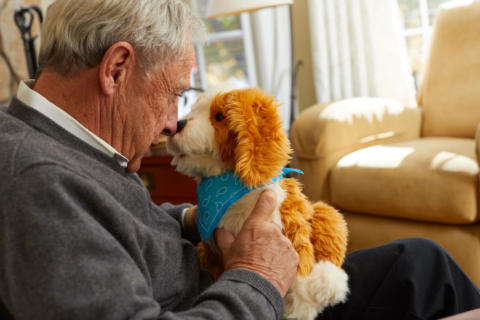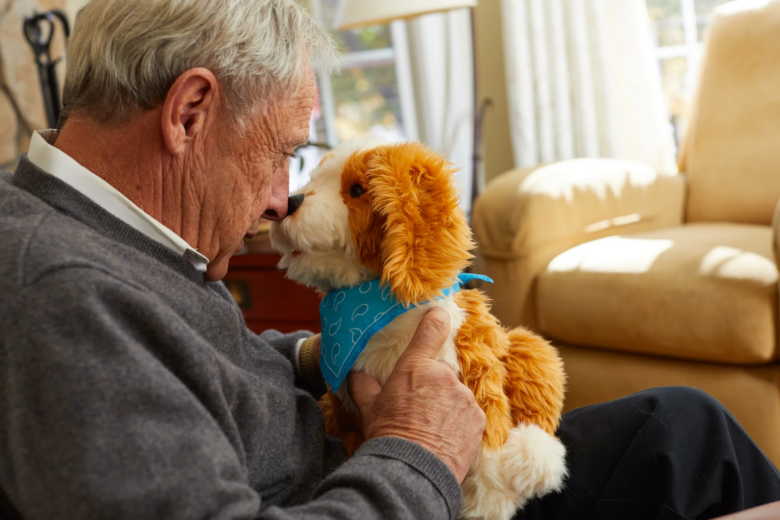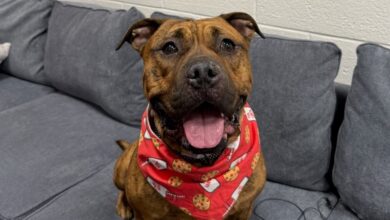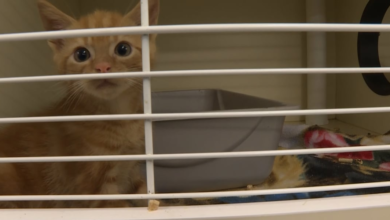Robotic pets offer gentle connection in ‘world of agitation, anger, confusion’ for DC dementia patients

For a dementia patient, holding a robotic dog or cat can provide soothing moments as loss of memory and other mental faculties interferes with daily life.

For a dementia patient, holding a robotic dog or cat can provide soothing moments in the life of a person whose loss of memory and other mental faculties is interfering with daily life.
“When given to a dementia sufferer in the middle to late stages of that terrible disease, they can improve, or dramatically improve, their daily demeanor,” said Steve Cone, chief of philanthropy, marketing and communications with Capital Caring.
“Many dementia sufferers live in a world of agitation, anger, confusion, hallucinating at times, sometimes physically violent, unfortunately,” Cone said. “When they’re handed one of these robotic dogs or cats, their whole personality changes for the better.”
And even though the pets themselves aren’t alive, the benefits for the dementia patient are real.
“These robotic pets respond like real pets to sight, sound and touch,” Cone said. “The more that you interact with the your pet, the more it interacts back.”
And the robotic pets, Cone said, don’t come with many of the hassles that real ones do.
“Dementia patients in the middle or late stages of the disease would be unable to care for a real pet, and could inadvertently harm one,” he said.
“They usually name them after a pet they’ve had in the past, or think their pet has come back to them,” Cone said.
Dementia patients often have a distorted sense of time, and might think they hadn’t talked to a family member or friend, despite the conversation occurring just hours earlier.
During December, Cone said several local charitable groups are working together to help seniors relieve loneliness.
“We’re providing 1,000 pets, thanks to a grant from the Washington Home, to older adults living alone in the District,” Cone said. “It’s estimated 74% of older adults living alone in the District experience social isolation, depression, and their medical conditions deteriorate as a result.
While hospices and other group settings often have therapy dogs, Cone said these individual pets can help improve a patient’s feeling of self-worth and accomplishment.
“This is a singular pet for a singular person,” Cone said. “If they want to share the pet, that’s up to them.”
The East River Family Strengthening Collaborative is overseeing the distribution of the pets to D.C. residents 60 and older who live in Wards 1, 7 and 8.
The effort in D.C. is modeled after a program in New York, according to Cone.
“The State of New York has handed out 40,000 of these pets over the last five years, and they have discovered dramatic improvement in the daily lives of seniors living alone, mostly low income,” Cone said.
Get breaking news and daily headlines delivered to your email inbox by signing up here.
© 2024 WTOP. All Rights Reserved. This website is not intended for users located within the European Economic Area.
2024-12-10 18:34:00
https://wtop.com/wp-content/uploads/2024/12/a0hr8dtd-2-e1733853012897.png




